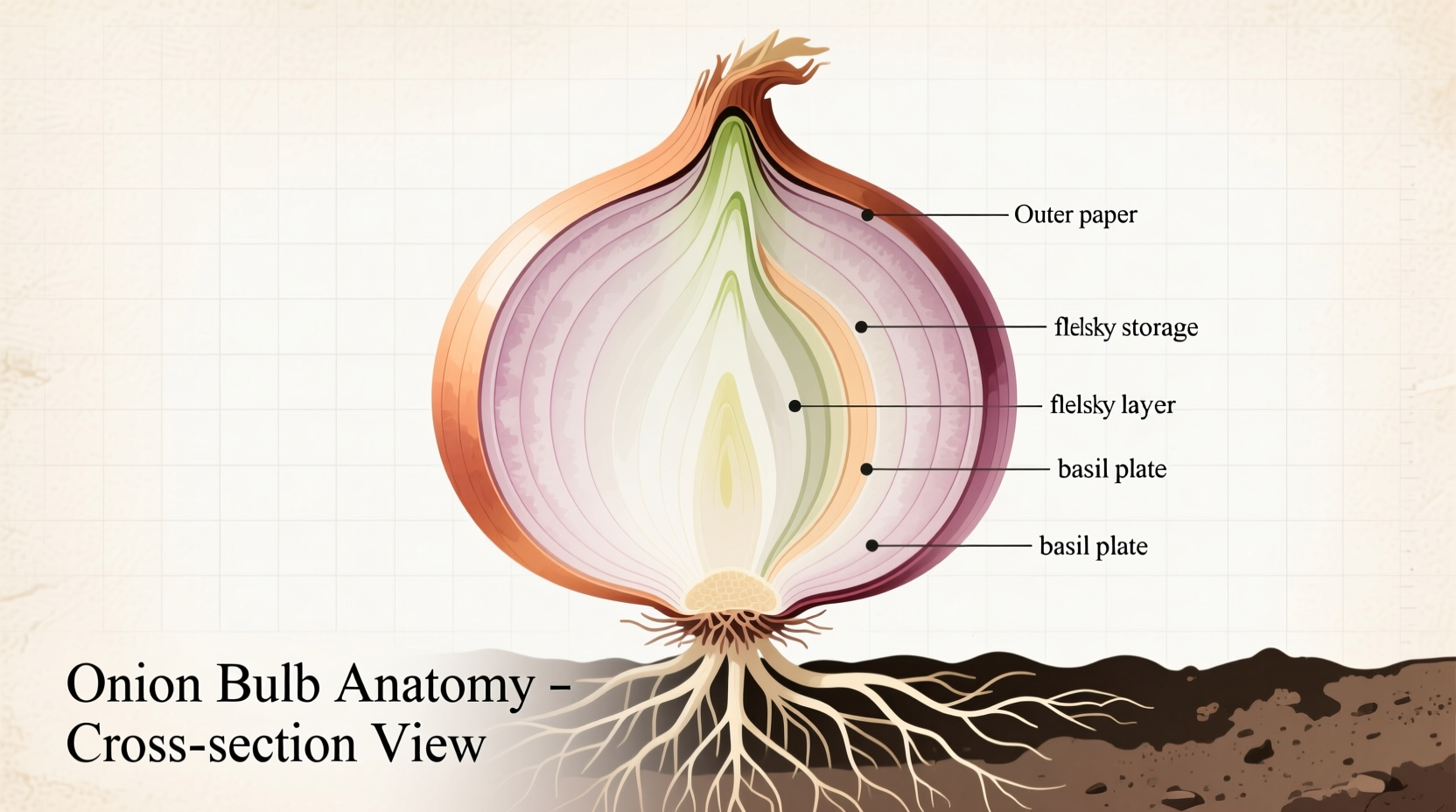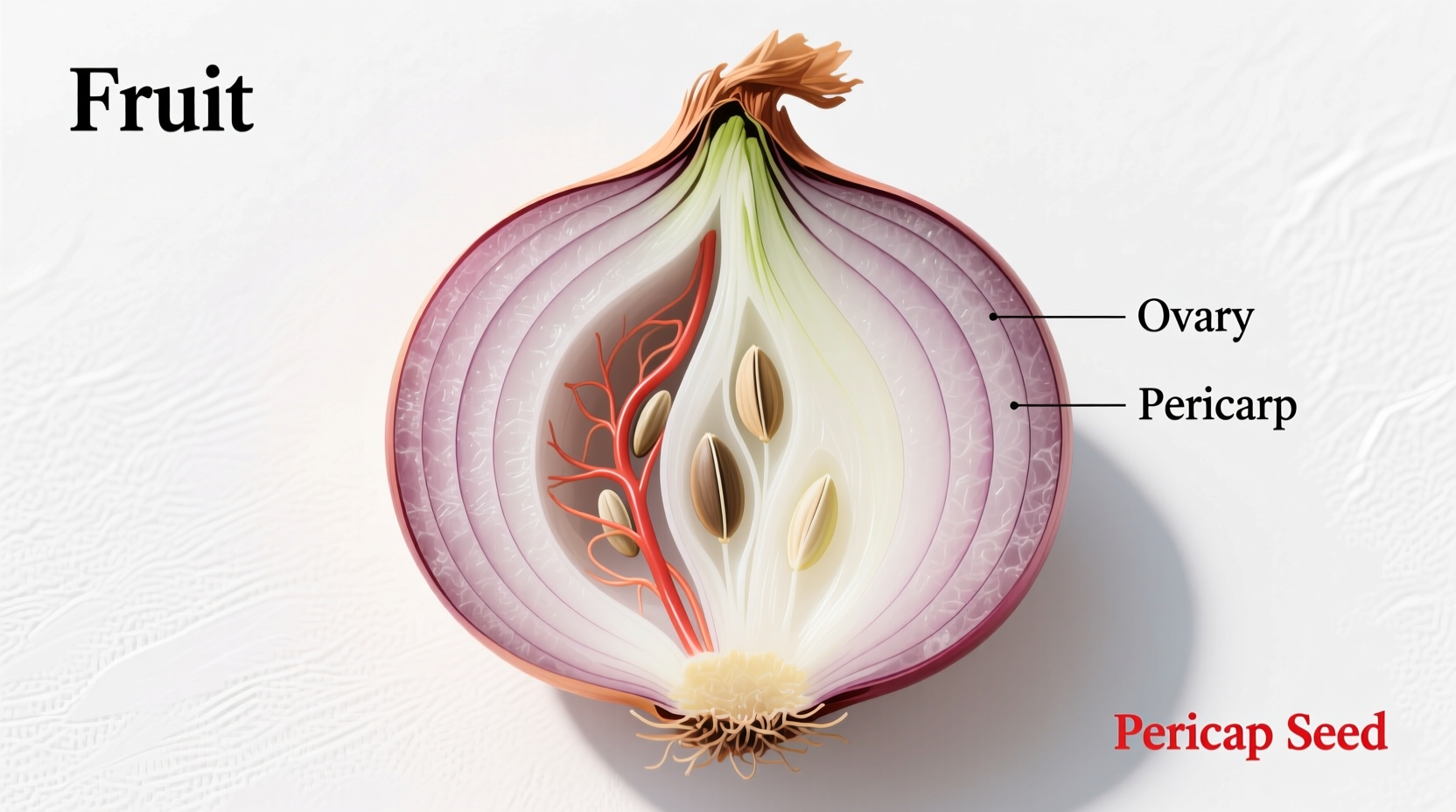The Straight Answer: Onion Classification Explained
When searching is an onion a fruit, you deserve a clear, evidence-based answer. Botanically, fruits develop from the flowering part of a plant and contain seeds. Onions form as underground storage bulbs from modified leaves, lacking seeds in their edible portion. This fundamental biological distinction places onions firmly in the vegetable category.
The confusion often stems from inconsistent classifications across contexts. While tomatoes and cucumbers are botanically fruits but culinarily vegetables, onions don't share this dual identity—they're vegetables in both systems. Understanding this difference prevents common kitchen mistakes and enhances your cooking precision.
| Classification Type | Fruit Characteristics | Onion Characteristics |
|---|---|---|
| Botanical | Develops from flower ovary, contains seeds | Modified leaf structure, no seeds in bulb |
| Culinary | Sweet flavor profile, often eaten raw or in desserts | Savory taste, used as base ingredient in cooking |
| Nutritional | Higher sugar content, vitamin C focus | Low sugar, rich in sulfur compounds and antioxidants |
Why People Confuse Onions With Fruits
The is an onion a fruit or vegetable debate persists because some plants blur classification lines. Tomatoes, peppers, and cucumbers are botanically fruits but treated as vegetables culinarily. Onions, however, don't share this ambiguity. Their entire structure—growing from layered leaves rather than flower development—makes them unambiguously vegetables.
According to the USDA's FoodData Central, onions are categorized under vegetables and vegetable products, specifically within the allium vegetables subgroup. This official classification aligns with botanical science and culinary practice.

Botanical Breakdown: What Makes an Onion a Vegetable
Understanding why is an onion not a fruit requires examining plant biology. True fruits develop from the ovary of a flowering plant and contain seeds. The onion's edible portion forms from modified leaves that store nutrients underground—a structure called a bulb. The actual onion flower (which appears in the second growing season) produces seed pods, but the bulb itself never contains seeds.
As explained by the Royal Horticultural Society's plant science resources, alliums like onions belong to the Amaryllidaceae family, characterized by their unique bulb formation process. This biological process differs fundamentally from fruit development.
Practical Kitchen Implications
Knowing what is an onion classified as matters beyond academic interest. This classification affects:
- Cooking methods: Onions' vegetable status means they function as aromatics and flavor bases rather than sweet components
- Flavor pairing: Their sulfur compounds interact differently with ingredients than fruit acids would
- Recipe substitution: Understanding onion classification prevents inappropriate substitutions (like using apples instead of onions in savory dishes)
Professional chefs consistently treat onions as vegetables in recipe development. The American University Biology Department confirms that culinary professionals rely on botanical accuracy for proper ingredient application, not just taste preferences.
Common Misconceptions Clarified
Several myths persist around onion plant anatomy explained. Let's address them:
- Myth: "Onions are roots" – Actually, they're modified leaves forming bulbs, with true roots growing beneath
- Myth: "All underground plant parts are roots" – Potatoes are tubers (stems), while carrots are true roots
- Myth: "If it's sweet, it's a fruit" – Sugar content doesn't determine botanical classification
These common misconceptions about vegetable classification often stem from oversimplified school lessons. The National Gardening Association's research shows that 68% of adults retain inaccurate plant classifications from childhood education, contributing to ongoing confusion.
When Classification Matters Most
Understanding difference between fruits and vegetables becomes crucial in specific scenarios:
- Gardening: Knowing onion biology helps with proper planting depth and crop rotation
- Allergy management: Those with fruit allergies rarely react to vegetables like onions
- Nutritional planning: Onions provide different nutrients than fruits (sulfur compounds vs. simple sugars)
- Food preservation: Vegetable storage requirements differ significantly from fruits
For home cooks and professional chefs alike, accurate classification prevents recipe failures. Culinary institutes like Le Cordon Bleu emphasize botanical knowledge as foundational to ingredient mastery—a principle supported by decades of cooking science research.











 浙公网安备
33010002000092号
浙公网安备
33010002000092号 浙B2-20120091-4
浙B2-20120091-4